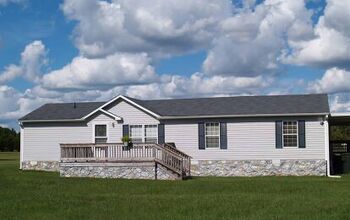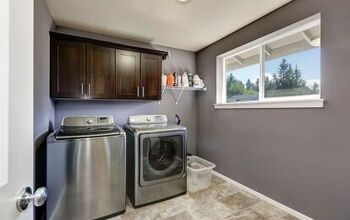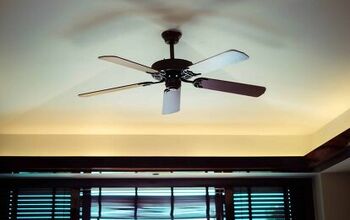Can You Operate A Tankless Gas Water Heater Without Electricity?

Power outages happen all the time. According to an aggregator of utility blackout data, there was a 73% increase in total power outages in 2020.
When the power goes out, you might be wondering if operating a tankless gas water heater without electricity is possible.
No, operating a tankless gas water heater without electricity is NOT possible. If you have a generator, battery, or tank, your water heater will keep working when the power goes out (for varying amounts of time). Tankless gas water heaters have electronic components that require power.
Virtually no one likes cold showers, especially cold showers in the dark when the power has been out for hours. Even worse is when there’s a limited amount of warm water that runs out halfway through your shower, so you’re stuck with freezing cold water and there’s still shampoo in your hair. A candle-lit warm bath, though? A whole different story.
Do You Need Tankless Water Heater Installation?
Get free, zero-commitment quotes from pro contractors near you.

So how do you get that warm water back?
How do you operate a tankless gas water heater when the power goes out? What options do you have?
Even though you can’t operate one without some sort of electricity, you still have three options available to you:
- A whole-home backup generator. This is the costliest option, but also the one that offers the highest level of comfort and convenience.
- A portable generator. When the power goes out, simply grab that portable generator and plug your water heater into it. Simple and cost-effective. And, when you’re done with your shower, you can use the portable generator to power whatever else you need.
- Backup battery. Backup batteries are sometimes built specifically for water heaters, so this is another option that you could look into. It’s also potentially one of the cheapest.
If you live in an area that experiences semi-regular power outages, or it’s simply something you find annoying when it does occur, however infrequently, you should look into one of these options.
First, in order to understand why you’ll need some sort of power source, let’s review how water heaters work.
How Do Water Heaters Work?
In order to have that warm, satisfying shower in the morning, you need a water heater. Most US homes have the older, traditional water heater design.
It typically looks like a big metal cylinder in a basement, laundry room, or garage. Without naming each individual component, the basics of the system are actually very simple.
Gas water heaters have a gas burner at the bottom of the tank while electric water heaters have a heating element in either the middle or bottom.
The gas heats a metal tube that runs through the middle of the tank. Through a pipe, cold water floods the tank. Cold water warms into hot water by coming into contact with that hot metal tube or heating element, and then hot water is distributed throughout your home through an outlet pipe.
The tube also, of course, carries toxic gas fumes out so that you’re not drinking chemicals all day. For electric water heaters, this isn’t an issue.
In between warm showers, the water sits in the tank waiting to be run through the pipes and into your bathroom.
Tankless water heaters, on the other hand, work a bit differently.
How Do Tankless Water Heaters Work?
Remember how we said that the hot water stays in the tank until you need it? What about tankless water heaters? Hot water can’t stay in the tank since there isn’t a tank, so where does it come from?
Well, the concept is essentially the same. There’s only one key difference: instead of having the water heat up in the tank, a heating element or gas burner warms water as it travels through the pipes.
Instead of having this big metal cylinder in your basement or laundry room, homes with tankless water heaters have a much smaller box, about the size of a power meter, hooked up to their plumbing.
Other advantages include an almost endless supply of hot water and a reduced energy bill of about 40%. However, they’re up to three times more expensive to install than traditional, tank water heaters. They’re also better for the environment since they use fewer materials overall. When you have to replace them, you’re not throwing away 150+ lbs of metal. Tankless water heaters, on average, weigh only 27lbs.
There’s another drawback, too: their reliance on a constant stream of energy.
Why Gas-Powered Tankless Water Heaters Need Electricity?
If you have a gas range or oven, you’ve almost undoubtedly been able to enjoy a warm, home-cooked meal even with the power out.
Why can’t a gas water heater do the same thing?
Well, in order to turn that range or oven on, you probably needed matches or a lighter. Your range might have a built-in electrical igniter, but without any power, you can’t use the electricity to start up the range.
There are a few reasons why gas water heaters need electricity, and that’s one of them. Even gas-powered tankless water heaters need an electrical current to fire up the ignitor and warm the water.
Tankless water heater systems prevent scathing hot water by using advanced monitoring systems that are powered by electricity. Even if you have a tankless water heater that’s strictly powered by gas, that’s another reason why they won’t work if your power is out.
If you have a tankless water heater, you’ve probably also noticed that there’s a control system on the front of it. Usually, there’s at least a thermostat that allows you to set the maximum temperature of the water. Well, that control system is, you guessed it, powered by electricity.
Even though tankless gas-powered water heaters use much less electricity than traditional water heating alternatives, they still need electricity to function.
However, that doesn’t mean that you can’t find a way for them to work even when your house is out of power.
How to Keep Your Tankless Water Heater Running During a Power Outage
What’s the best way to keep your water heater running when the power goes out?
Invest in some sort of alternative energy source. Your best option is a backup generator. You’d be able to power all of the essentials, from the fridge to the water heater to the router to the lights.
If you’re only looking to power the water heater, though, another great option is a backup battery system.
There are backup batteries built specifically for tankless water heaters, but the gist is the same for all of them: they work almost like mini backup generators for any appliance that they’re hooked up to.
So, one of the advantages they have over a backup generator is that they don’t need to be individually plugged in. They’ll kick in as soon as the power goes out. If you’re in the middle of that shower, then, the warm water will just keep flowing.
However, they can get pretty expensive if you’re looking to buy one for each individual appliance you’ll need to keep running.
So, to help you make a better decision, let’s look at the pros and cons of home backup generators and batteries.
Home Backup Generators vs Portable Generators vs. Battery Backup Systems
Home backup generators (or simply portable generators) and battery backup systems will power your tankless gas water heater in the event of a power outage, but there’s no one-size-fits-all solution.
Let’s look at the pros and cons of each.
Pros of Home Backup Generators
Home backup generators work automatically. They sense when the power goes out, click on, and distribute power through your home. They work using natural gas, propane, or diesel, and they’ll keep running until the main power kicks back on.
The benefits to this type of system include:
- Hassle-free power distribution. When the power goes out, the power pops back on. You don’t have to wrestle with a bunch of cords and plug in individual necessities.
- A/C and forced warm air systems stay on the whole time.
- You simply don’t have to worry about what’s going to happen when the power goes out. If you’re in the middle of an important Skype call, you know that there might be a small blip while your home switches to the generator, but there won’t be a massive distraction.
- Attractive to prospective home-buyers. Depending on where you live, your home value may actually increase if you have a generator.
- Can run for weeks. If you properly maintain a whole-home generator, it can run for weeks. If you work from home, this is a big draw.
- Another little-known benefit: having a residential backup generator can actually lower your homeowner’s insurance. Having a home that’s constantly well-lit will deter burglars. I’m not sure exactly how much less you’ll end up paying for insurance, if any, but it might be something worth discussing with your agent if you’re going to buy one anyway.
Cons of Home Backup Generators
Now, what about the drawbacks to home backup generators?
- Expensive to install and purchase. Whole-house backup generators cost as much as $4,000, but that doesn’t include the price to install. When it’s all said and done, in order to install and purchase a generator that can service a medium-sized home the price will likely be between $12,000-$25,000.
- Expensive to maintain. Fuel isn’t cheap, and it’s not getting much cheaper. The average maintenance costs for a generator of this size run from $200-$500 per year — and that isn’t with very frequent use. Plus, if something goes wrong with it, you might not know until it tries to kick on when the power is out. Then, all of a sudden, you might have two problems on your hands: no power and a broken generator.
- If you’ve ever had experience with one of these generators, you’d know that they aren’t cheap. Everyone in the neighborhood will know that you have one, because they’ll be able to hear it kick on.
- Not necessarily environmentally friendly. Many environmentalists are urging average, everyday people to use less energy for their everyday activities. It goes without saying that using natural gas to power your 50-inch flatscreen for another episode of your favorite show is much, much worse than using public utility power.
- Not exactly aesthetically attractive. Lot sizes vary by property, and not everyone has somewhere they could install a whole-home generator that’s out of sight. It’s definitely something to consider if you’re looking into this option.
How often is this a problem for you and how much are you willing to spend on it? Is the power going out all the time or is it something that happens every few months before clicking back on?
Should you get a home generator to power your tankless gas water heater? You should buy a home generator if you live somewhere you need heating and cooling, and if you work from home and absolutely can’t afford to lose power.
However, if you’re just looking to power a simple water heater, you probably don’t need a full-on home generator. There are definitely other, more affordable options. They might not offer the same level of comfort and convenience, but they’ll certainly let you get back to that warm shower.
Pros of Portable Generators
One of those options: portable generators.
Now, what are some of the benefits of buying a portable generator for your water heater?
- Pretty affordable. Just like whole-home generators, in order of least to most expensive, portable generators can run on gas, propane, and diesel. Unlike whole-home generators, though, a gas portable generator will only cost you about $250-650.
- If you only need warm water for a specific purpose, like taking a shower, you can just unplug your portable generator and use it somewhere else. Furthermore, if you really like camping, you can take your portable generator with you.
- No maintenance. Unlike a whole-home generator, maintaining a portable generator is simple. Just make sure you have some gas on hand and you’ll be good to go.
- There’s no installation and the set-up usually doesn’t require much.
Cons of Portable Generators
- Doesn’t run for a long time. You have to fill it up much more often than you would with a whole-home generator, which can usually store hundreds of gallons. A portable generator might only hold three to six gallons, requiring you to refill it if you use up all of the gas. For most people, that means it’s only going to run for a few hours.
- Still have to run it outside. This is another reason why filling it up is such a pain. You don’t want to run the risk of carbon monoxide poisoning. You need to place the portable generator outdoors. Many experts also warn against running your portable generator inside the garage, since it won’t ventilate well.
- Don’t turn on automatically. Unlike the other options, you have to turn on a portable generator yourself.
- Doesn’t have a very long reach. You’ll need to buy an extension cord if you want to plug it into your water heater.
Still, of the three options, this is one of the best. A whole-home generator only makes sense for a small number of people who are experiencing very regular power outages. The price is exorbitant and you’re probably unlikely to increase your home value by the amount that it costs to install.
A portable generator, on the other hand, gets the job done effectively and relatively cheaply. Yes, running out in the rain to turn it on can be a major pain, but it’ll probably stay on long enough for the power to kick back on, unless you live in the middle of nowhere.
But what about backup battery systems? How do those work?
Pros of Backup Battery Systems
Backup battery systems are a kind-of halfway point between portable generators and whole-home generators. You can think of them as tiny little electric generators for each appliance in your home that you use them with.
- Cost effective. A backup battery will probably only cost about $500-$750.
- Kicks on automatically when the power is out. Most batteries have an automatic switch-over that will sense when the main power stops working, and then it’ll switch back when the power comes back on.
- Works indoors and outdoors.
- Produces no fumes.
- Runs for a decently long time. Usually anywhere from 12-18 hours with no additional energy hookup.
- Sometimes solar compatible. If you have solar panels installed, you could hook them up to this battery and have your water heater last longer.
Cons of Backup Battery Systems
But what might steer you away from buying one of these?
- Not very versatile. You can use an extension cord and a portable generator to power virtually anything in your home. It’s easy to use and it’s straightforward. You can use a backup battery system to power one of your appliances.
- Installation isn’t necessarily easy. You’ll need to do some plumbing work in order to install a backup battery system for your water heater. They aren’t the most DIY-friendly option, but neither are whole-home generators.
A backup battery system might be a great idea if you only want to power your water heater with no frills. You’ll probably have to call a plumber to install it, but the total cost will probably be under $700. It’s more environmentally friendly than both the whole-home generator and a portable generator and it offers peace of mind. You won’t have to worry about running out of hot water ever again.
What if you’re not sure what type of water heater you have? We included a section below to help you figure it out, based on what happens when there’s a storm…
Will My Water Heater Work Without Electricity?
You can tell if your water heater will keep running when the power goes out by checking to see if it’s connected to a main power outlet or not. If it is, it won’t work when the power goes out. If it isn’t, it might be entirely powered by gas. Therefore, it will keep working.
This is what will happen in the event of a power outage with each type of water heater:
- If you have a gas-powered tank water heater, it might still work and keep working when the power goes out. If the gas-powered water heater relies on electricity to light the ignition, however, you’ll be out of luck.
- If you have an electric-powered tank water heater, it will work for a little while in the event of a power outage, because there’s still hot water left in the tank. The same thing is true for gas water heaters that rely on electricity. Don’t waste that remaining warm water on just anything.
- If you have an electric tankless water heater, it simply won’t work. You’ll run out of water almost immediately.
- If you have a gas-powered tankless water heater, the same thing is true. It just won’t work when the power goes out.
Other Great Options
A portable generator is a great option. Most people don’t experience power outages that last longer than a few hours, which is about how long a portable generator lasts. Buy an extension cord, some gas, and a portable generator. Plug it into your water heater. Go take that warm shower. It’s that easy. You can also use the portable generator for camping or any other outdoor use you can think of.
Finally, a backup battery is another great option, especially if you like the peace of mind of a whole-home generator without the cost. You’ll probably need some plumbing experience to install it, but once you do, it’ll sense when the power is off and kick on for about 12-18 hours. Probably one of the most environmentally friendly options, too, since it’s electric.
Do You Need Tankless Water Heater Installation?
Get free, zero-commitment quotes from pro contractors near you.

Our Final Take
A tankless gas water heater will not run without electricity. You’ll need some sort of power source since the ignition and control panel depends on it. If you’re interested in operating a tankless gas water heater without electricity (or public utility electricity, that is), consider buying a whole-home generator, a portable generator, or a backup battery.
The costliest but most comforting option is the whole-home generator. Depending on where you live, this might also increase the value of your home and offset your insurance bill, but probably not by enough to offset the cost of the system. Most typical buyers don’t expect a generator, so it’s just a nice addition to have to a home. If you live in an area that demands heating or cooling (and you have money to blow), this could be a good option.

We are a team of passionate homeowners, home improvement pros, and DIY enthusiasts who enjoy sharing home improvement, housekeeping, decorating, and more with other homeowners! Whether you're looking for a step-by-step guide on fixing an appliance or the cost of installing a fence, we've here to help.
More by Upgraded Home Team



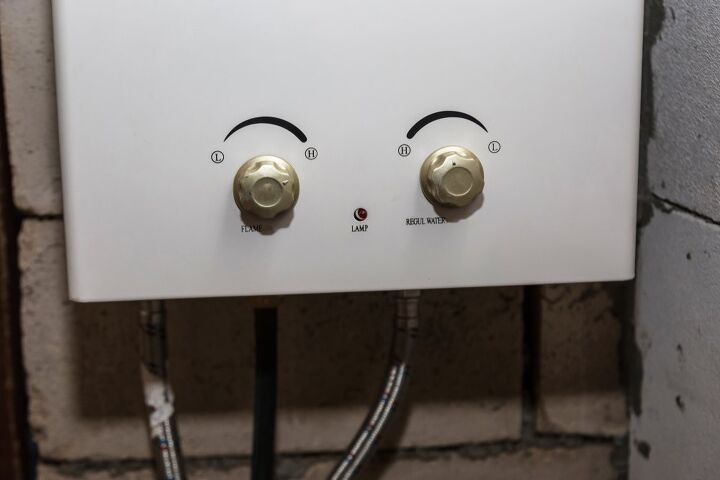






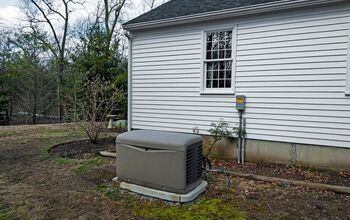
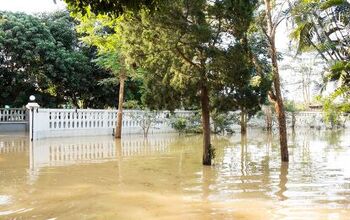
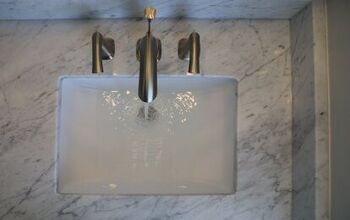
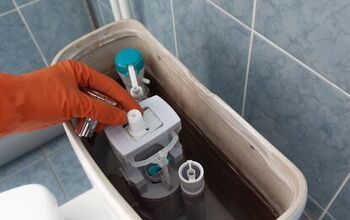



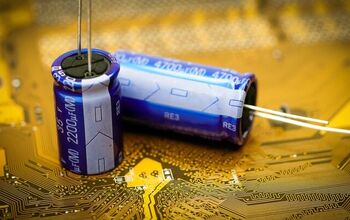
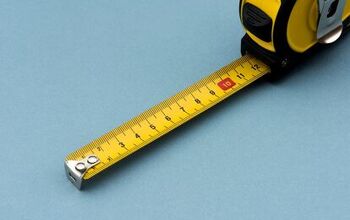
![How To Reset A Whirlpool Cabrio Washer [In 5 Easy Steps!]](https://cdn-fastly.upgradedhome.com/media/2023/07/31/9076531/how-to-reset-a-whirlpool-cabrio-washer-in-5-easy-steps.jpg?size=350x220)




